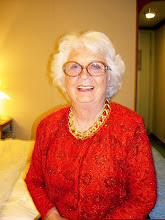I call this segment of my dad's story The Man With the Power because it always seemed to me that he knew everybody, and that he always controlled every situation. I came to this conclusion when I was about six. The house we lived in had a lane just wide enough for one car. To pass another vehicle one driver needed to back his car back into the front yard or into the main road, whichever was closer. I noticed that Daddy was never the one to back up. He just sat still and waited for the person headed to or from our house to back up and let him pass. I may not remember it correctly, but I saw him tell a friend who was headed in and backed to the main road, "Come on up to the house. I won't be gone long." People seemed to let him carry the situation his own way. I remember taking a class in sociology where we learned to analyze the power structure of communities and neighborhoods. I wrote my paper on Ocracoke Island, just off the coast of NC where many people had never taken a boat to the main land. You only needed to spend a few days there to realize that the people with all the power on the island were those who were in the Coast Guard. I cannot account for my dad's popularity, because he had no money nor property, only an infectious laugh (a low huh, huh, huh) and a fantastic memory for detail.
To illustrate his memory, I recall that he had a favorite poem about "Hoover Times" which he read in the paper when Roosevelt was running against Thomas Dewey. Hoover had been president during the Great Depression when most people had seen very hard times. I cannot remember all of it but it was something like this:
When Hoover was president I lived on a farm,
And a dollar bill was as long as my arm.
If Dewey wins I'll move back to the farm,
And plant some vegetables behind the barn.
I'll feed my family with roasting ears,
And try to get by for four more years.
He had very strong opinions, but I do not ever remember hearing him argue with anyone except my husband. Then it was fun for him.
He had a solution for every problem. When I was about six I was doing a lot of work on the farm. I hated getting up early, while it was still dark. When I was tired I was not allowed to rest, so I faked a stomach ache in order to get some rest. The regularity of my stomach aches raised some suspiscion with Daddy. He announced to everybody, including the hired hands, that he knew something that would cure a stomach ache in a hurry. He asked Momma to bring him the empty blue quinine on the kitchen shelf, which he took to the pasture and in plain sight began to fill it with sheep droppings, which look for all the world like symetrical pharmacy pills. In all seriousness he asked me if I could swallow them dry, or if he should get a glass of water for me to wash them down. By that time I was sobbing and my face was washed with tears. I replied in a shaking voice, "I'll take them with a little water."
He could control his laughter no longer, and I was relieved to see he was only joking, and that he was onto my deception. I could never find any way out of the forced childhood labor after that. I don't remember when I actually began to enjoy the work. Maybe it was when I knew there was no way out, but if I could do it better than any of the others, it gave me some measure of success, or gave me some attention.
He was not a person to ask, "What would you like to do?" He made all the decisions. He and Momma drove to see us several times when we lived in Southern Pines, the first year we were married. My getting engaged only drew one remark from him. He said it looked like I would want to work a while first, I had worked three years, paid off my college loans, bought and paid for my car, and bought Momma a gas stove and refrigerator.
When we were out of the army and living in New Mexico they drove to see us there, and brought Bobby and Ella and their two little boys. We skipped church on Sunday to take Daddy and Momma sightseeing up to Taos and Santa Fe. Ella found a Baptist church for them to attend. Before they left we took them by our brand new chapel. My parents and Bobby commented that it was very nice, but Ella kept her eyes in her lap, refusing to look at it. When they had gone home we noticed two leaflets left on our living room table which they had brought from the Baptist Church. We thought how fortunate Bobby was to have married this beautiful girl who was five years younger, such a good little mother and so dedicated to their church. She was very smart and would later return to high school, get her diploma, enroll in nursing school and graduate first in her class of one hundred. We have watched with pride as they raised their three sons, and we consider it one of the greatest blessing of our old age that we have had a hand in their conversion to the Mormon faith. Another story for another segment. My next story will be of my own father's conversion. I really cannot take any credit. It was living with an angel forty years.
Sunday, June 21, 2009
Subscribe to:
Post Comments (Atom)

No comments:
Post a Comment